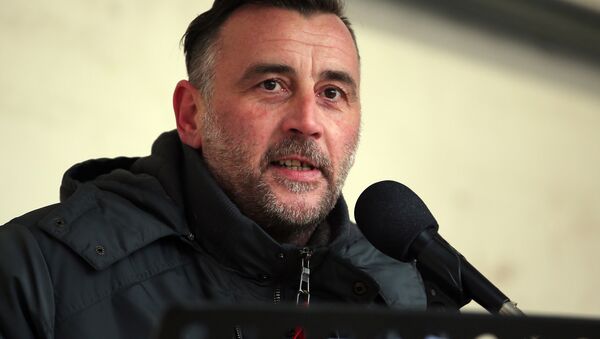Bachman founded the anti-Islam organization Pegida — Patriotic Europeans Against the Islamisation of the West — during October 2014.
Whilst Pegida has enjoyed increased support since its inception, the continued growth of the far-right in German politics has begun to shift — favoring the more moderate presentation of parties like the AfD, whose antagonistic positions on issues like immigration boast a more acceptable public face.
The current court case is not the first time that Lutz Bachman has courted controversy. In 2015, he was forced temporarily to resign as Pegida's Chairman after a photograph emerged of him with a Hitler mustache. Bachman also has numerous criminal records for drunk driving, assault and no less than 16 burglaries.

Bachman denies the hate speech charges, and has been accused of using the trial as an opportunity for publicity; arriving as he did, wearing a pair of sunglasses that were modified to resemble a censorship block over his eyes.
The stunt was apparently coordinated with Pegida supporters, many of whom attended the trial wearing similarly modified sunglasses — they were warned against disrupting proceedings by the court warden though, after applauding Lutz Bachman on his arrival.
#LutzBachman #PEGIDA founder security screened before allowed entry back into the court room in #Dresden pic.twitter.com/IN4M9l8BhX
— Alex Poucher (@alexpoucher) April 19, 2016
Despite the protests of Bachman's supporters, Germany has a positive record in terms of censorship, consistently ranking in the top 20 of the Press Freedom Index's "most free countries."
Section 130 of Germany's Strafgesetzbuch (criminal code) cites the "incitement of popular hatred" (Volksverhetzung) as an offense.
The court said that the comments made by Bachman were an "attack on the dignity" of refugees, and "disrupted public order." Prosecutors say that he could face jail for anything between 3 months and 5 years if found guilty.




